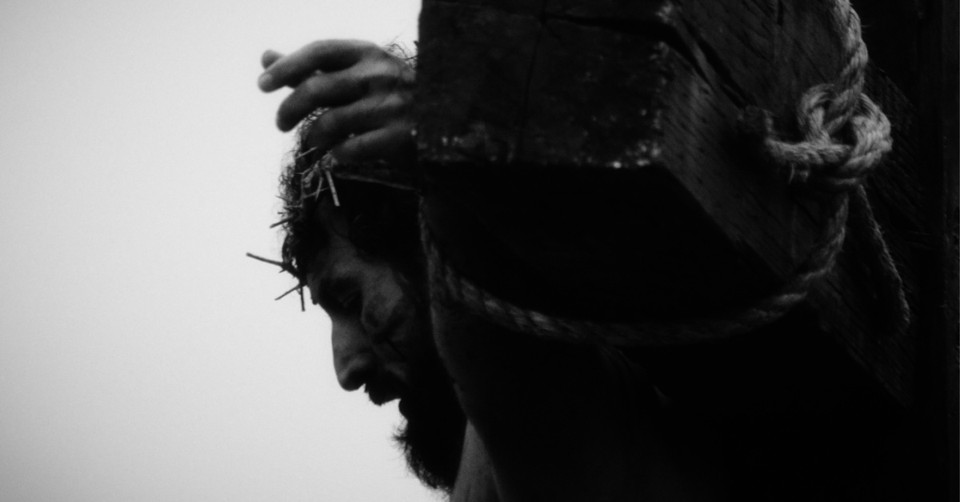This Ask Roger article may feature insights from Roger's wife, Dr. Julie Barrier, co-founder of Preach It, Teach It, worship minister, concert artist, and adjunct professor at Golden Gate Baptist Theological Seminary, or his daughter, Brie Barrier Wetherbee, a sought-after Bible teacher and conference speaker, author, analyst, and Christian theologian.
Dear Roger,
I often wonder if Jesus felt the same way I do about things. I know He did in many ways—like temptation and grief—but I don’t really get how He could have felt emotions like shame. Can you help me understand?
Sincerely, Richard
This is a great question! It IS hard to understand how Jesus could have experienced shame. After all, shame is an emotion we feel when we’ve done something wrong, and Jesus never sinned. He was fully divine.
However, we also know that Jesus became fully human, so that He could be the one mediator between God and us (see 1 Timothy 2:5). He knows everything we face as humans—He experienced it all, so that He could advocate on our behalf before God.
In Hebrews 12:1-2, we read that Jesus did experience shame … the shame of the cross. Imagine the shame He endured as He hung naked, suspended between heaven and earth. Then read this powerful Scripture with me:
Jesus, who for the joy set before him, endured the cross, despising its shame, and sat down at the right hand of the throne of God.
Photo Credit: ©Sparrowstock
Jesus Christ Suffered Shame on Our Behalf
Many of us would rather die than be shamed like Jesus was in front of others. Have you ever been so ashamed or embarrassed that you just wanted to “crawl into a hole and die”?
Think about your most embarrassing moment. Shame is often tied to embarrassment.
My earliest shaming occurred when I was in first grade. Mrs. Summers, our teacher, held up a dime and asked, “Does this belong to anyone?”
Immediately, I raised my hand and responded, “It’s mine.” I lied.
Several days later, mom was checking my pockets before she put my pants in the washing machine. By now, I’d forgotten all about the dime.
“Where did you get this,” she asked.
“I found it,” I lied.
Unfortunately, moms can usually read their children like open books. It wasn’t long until the true story was out. “Tomorrow,” she said, “I’m going to school with you, and you are going to tell everyone in the room that you lied and then apologize for what you’ve done. Then you have to give the dime to Mrs. Summers!”
Oh, the shame of it all. I wept in front of the class!
As she left the classroom, she said for all to hear, “I have no intention of raising a liar.” I was double-shamed.
The Philistine King, Abimelech, was not ashamed to murder several of his brothers. However, he was mortally wounded when a woman standing on top of the city wall dropped a millstone on his head.
Knowing that he was about to die, he committed suicide by disemboweling himself. As he thrust his knife into his lower abdomen, he cried, “Never let it be said that the great king of the Philistines was put to death at the hand of a woman!” He died in order to avoid what he considered to be a great shame.
Nothing can so break the human spirit as to be continually put to shame.
Look at Jesus Christ. He despised the shame… but He endured the greatest shame on our behalf.
The Shameful Rejection
He came to His own and His own in his own received Him not. (John 1:10-12)
During His ministry, Jesus went to the village where he grew up. His family and childhood friends were there. But they didn’t want him around. They even picked up rocks to stone him. Imagine the look on Jesus’ face. Was his face held high? Or was his face cast down in shame?
Again, being fully divine as well as fully human, He experienced at least some measure of shameful humiliation. He was rejected.

The Shameful Accusation
He was brought before Annas and Caiphas. The charge was blasphemy.
Then the high priest asked him, “Are you the Messiah, the Son of the Blessed One?”
Jesus said, “I am. And you will see the Son of Man seated in the place of power at God’s right hand[and coming on the clouds of heaven.”
Then the high priest tore his clothing to show his horror and said, “Why do we need other witnesses. You have all heard his blasphemy. What is your verdict?
“Guilty!” they all cried. “He deserves to die!” (Mark 14:56-64)
Imagine the charge of blasphemy given to the One who had never sinned!
To charge some of us with blasphemy would startle no one. Some of us have done it to others. But to be charged with blasphemy must have brought a deep sense of shame to Jesus’s heart. After all, no one loved like Jesus loved or obeyed as Jesus obeyed. In that moment, the charge of blasphemy must have caused Him deep shame and suffering.
The Shameful Mocking of His Deity
Then some began to spit at him; they blindfolded him, struck him with their fists, and said, “Prophesy!” And the guards took him and beat him.” (Mark 14:65)
The Pharisees and crowds spit on Jesus, blindfolded Him, and demanded, “If you are God then tell us who hit you.” They ridiculed him with sticks and bricks. “Prophesy!” They cried in mocking voices. “Tell us who you really are.”
King Herod mocked, “Do some showy tricks. Prove you’re the Son of God, and I’ll let you go free.” Jesus must have felt so ashamed and hurt.
The Shameful Mocking of His Kingship
They put a purple robe on him, then twisted together a crown of thorns and set it on him. And they began to call out to him, “Hail, king of the Jews!” Again and again, they struck him on the head with a staff and spit on him. Falling on their knees, they paid homage to him. And when they had mocked him, they took off the purple robe and put his own clothes on him. Then they led him out to crucify him. (Mark 15:16-20)
The King of Kings, who willingly took off His heavenly glory for our sake, was dressed up as a “king” for the amusement of his tormentors. They laughed and mocked him, taunting Him when He didn’t respond. Jesus’ heart must have been broken; He felt such shame.
Photo Credit: ©iStock/Getty Images Plus/Srdjanns74
The Shameful Mocking of His Prayers
Seldom in the annals of execution does anyone mock the prayers of a villain about to hang. “Give me a moment or two to pray.” It is a rare case when that request is denied.
Look at Jesus Christ; even His prayers were objects of derision.
And at three in the afternoon Jesus cried out in a loud voice, “Eloi, Eloi, lema sabachthani?” (which means “My God, my God, why have you forsaken me?”)
When some of those standing near heard this, they said, “Listen, he’s calling for Elijah. Let’s see if Elijah comes to take him down.”
With a loud cry, Jesus breathed his last.” (Mark 15:33-37)
Oh, my. Can you imagine how that must have felt? Jesus cried out before His Father in desperation. He was enduring the worst pain a person could survive … until it was time to die. And in those last moments, the people mocked Him. They shamed His very conversation with God Almighty!
The Shameful Suffering of the Cross
Those who were crucified with him also reviled him (Mark 15:32)
There’s no more shameful way to suffer and die than on a cross. Humans have invented all sorts of torturous ways to kill one another: guillotine, gas chamber, firing squad, electric chair, hanging, skinning and drowning, just to name a few.
But thousands of years ago up to today, dying on a cross has been reserved for the lowest criminals.
The Old Testament says, “Cursed is everyone who dies on a cross.” Jesus faced the curse, took it on Himself, and endured the shame.
Take a moment to consider those moments with me.
Jesus patiently endured the nails hammered through His hands. He silently endured the insults, the mockery, and the laughter. He hung there, His body broken, His life about to end.
Don’t you know that His tender heart bled as He was put to death by the very ones He had created! The men for whom He’d given his life were now taking His.

Why Endure the Shame?
Because enduring the shame was insignificant compared to the joy of saving you and me.
But the story doesn’t end with the shameful bleak death of the cross. Jesus endured the shame for your sake and for mine. He took on the consequences of our wrongdoings—physical, mental, emotional, and spiritual—and He paid for them all. The eternal salvation He offers us was bought for a dear price.
Jesus knows shame. He chose to experience it for us.
[Jesus], being in very nature God, did not consider equality with God something to be used to his own advantage; rather, he made himself nothing by taking the very nature of a servant, being made in human likeness.
And being found in appearance as a man, he humbled himself by becoming obedient to death—even death on a cross!
Therefore God exalted him to the highest place and gave him the name that is above every name, that at the name of Jesus every knee should bow, in heaven and on earth and under the earth, and every tongue acknowledge that Jesus Christ is Lord, to the glory of God the Father. (Philippians 2:6-11)
Paul Harvey tells the story of a New England preacher who encountered a young boy who was carrying a cage with cowbirds inside.
“What are you going to do with them?” asked the preacher.
The boy replied, “I’ll play with them.”
“But what happens when you get tired of playing with them?”
“Oh, the old cat loves cowbirds. I’ll give them to her.”
The preacher asked, “How much for the birds in the cage?”
Picture Jesus meeting Satan. “What do you have in the cage?”
Satan responds, “Some human beings.”
“What will you do with them?”
“I’m going to play with them.”
“But what will you do when you get tired of them?”
“I have lots of ways to get rid of them. Murder, divorce, war, slavery …”
“How much for the people in the cage?”
“Oh, you don’t want them. They’ll spit on you, mock you, and reject you.”
“How much?”
“Nothing less than your blood on the cross.”
Jesus reached out His hand; “Let me have the cage.”
Jesus Christ suffered the ultimate shame on our behalf … out of His great love.
I hope this is helpful for you.
Love, Roger
Photo Credit: ©GettyImages/leolintang
Originally published April 11, 2023.








